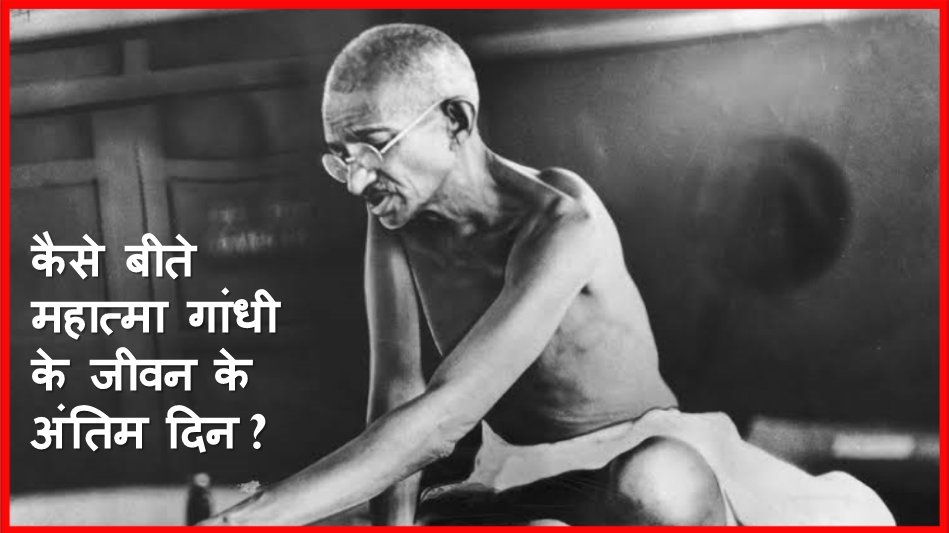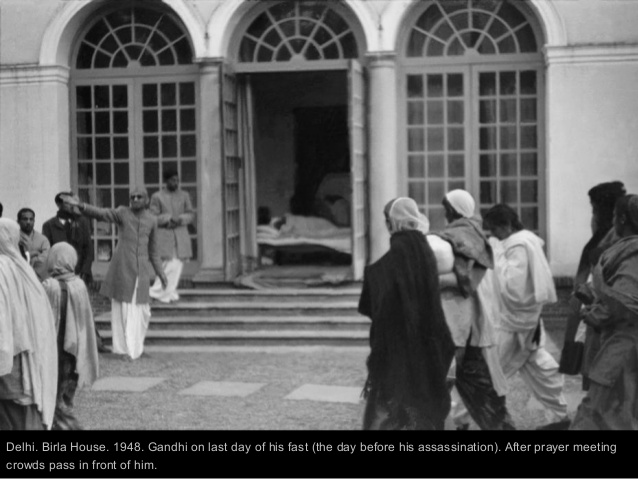What is common to the great struggles associated with such great leaders as Nelson Mandela, Martin Luther King and Badshah Khan in places so distant from each other? What is common to such famous environmental movements as Chipko/Appiko (for saving forests) and Narmada Bachao Andolan (for saving rivers)?
While these struggles had their own highly original and great contributions, one aspect common to them is that all these struggles acknowledged the work, social experiments and ideas of Mahatma Gandhi as a big source of inspiration.
On 30 January the world observes the death anniversary of Mahatma Gandhi. 76 years after he left us, victim of an assassin’s bullets, many people grappling with the most serious problems of our increasingly troubled and endangered world are increasingly realizing the great value of several essential messages Mahatma Gandhi left behind after a very eventful, thoughtful and inspiring life.
One of these relates to understanding and appreciating the great importance of non-violence in everyday life. In a world so deeply distressed by alarming incidence of gender violence, domestic violence, workplace violence , street violence etc. better understanding and appreciation of the importance of non-violence implies a reduction not just in actual acts of violence but also conscious efforts to reduce anger, jealousy, greed, aggressive competitiveness and other tendencies which are associated with violence in daily life.

While this by itself leads to reduction of distress in daily life, this also serves as a training ground for the wider task of resisting injustice in non-violent ways. Non-violence devoid of its links of resisting injustice is a very limited concept. The wider significance of non-violence comes from its important link of resisting injustice of various kinds. In fact injustice has very close linkages with violence, violent thinking, dominance and urge for dominance. Hence to think of violence as a means of resisting injustice is not very natural and rational, as violent thinking is itself a part of the web of injustice. On the other hand, it is much more natural for non-violence to be a means of resisting injustice. By leaving the path of violence and opting for the path of non-violence for resisting injustice, we may be able to find more durable and sustainable ways of creating a justice based society which has a wider acceptability.
If in two neighboring countries there are many more people practicing non-violence in daily life and also using non-violence to resist injustice in numerous small ways at local levels, the chances become very high that these countries will never fight a war, will not engage in an arms race and will find peaceful, justice-based ways of resolving differences. This is how a strong local base is created for peace and how this can be linked to global issues. If there is strong commitment at world level, within a decade very strong support for a future without wars and without the most terrible weapons can be created.

As a part of his overall efforts for peace, Gandhi made a very strong plea for inter-faith harmony. His message to people of all religions was to pursue their religious beliefs in such a way that there is no hostility with other religions, so that away from any aggressive inclinations, religion is restored to its essential role of providing strength for spiritual progress, and this in turn provides conducive conditions for the most important tasks of peace, justice and protecting environment.
Most destructive weapons on the one hand and ecological ruin on the other hand are the two most serious problems of our world today. These are usually treated separately but one basic cause is common to both—greed and the urge for snatching the share of others based on this, and acceptance of this as a predominant social value.
Mahatma Gandhi rejected this and instead pleaded for voluntary acceptance of frugality and simplicity—a life of limited needs—as the desirable norm of life. The essence of this message is that if we all learn to be happy in a simple life based on voluntary acceptance of limited requirements, then the web of never-ending greed, unlimited acquisition and the urge of dominance linked to this which traps humanity can be broken, leading to contentment in daily life and ability to meet needs of all without causing ecological crisis, providing enough space for meeting needs of other life-forms and creating a strong foundation for durable world peace.
With his strong emphasis on frugality Gandhi continued experimenting in various ways in important areas of food, health, education etc. His experiments lead towards maintaining good health in natural, simple ways, with emphasis on hygiene, living close to nature without relying too much on expensive medication. There is a complete rejection of alcohol, tobacco and all intoxicants. Education should never lead to alienation but instead should involve getting closer to community needs, combining creativity in intellectual as well as manual work of crafts, farming etc. Ethical issues are most important, whether in education, livelihoods or overall economy.
Another important message from Gandhi is for more self-reliant and resilient communities which are capable of meeting many of their needs at local level in very creative, decentralized ways, combining very satisfactory livelihoods close to home with access to high quality, healthy food, and many other basic goods and services. For meeting other requirements and securing additional opportunities integration with national and global economy of course continues to exist. This is community life based on close relationships and protection of livelihoods and basic needs regardless of fluctuations of global economy. Such community life, with precepts and practice of equality and justice, provides a good base for creating a world based on peace, justice and environment protection. Gandhi placed more emphasis on rural community life without rejecting urban life.
As many activists and people try to engage with some of these most essential and creative tasks, the work and ideas of Mahatma Gandhi continue to be an increasingly important source of help and inspiration for them. The relevance of his ideas for checking some of the most important problems of present day world is increasing.
Bharat Dogra is a journalist and author. His recent books include Man over Machine (Gandhi’s Ideas for our times), Protecting Earth for Children, Earth without Borders and Planet in Peril.










